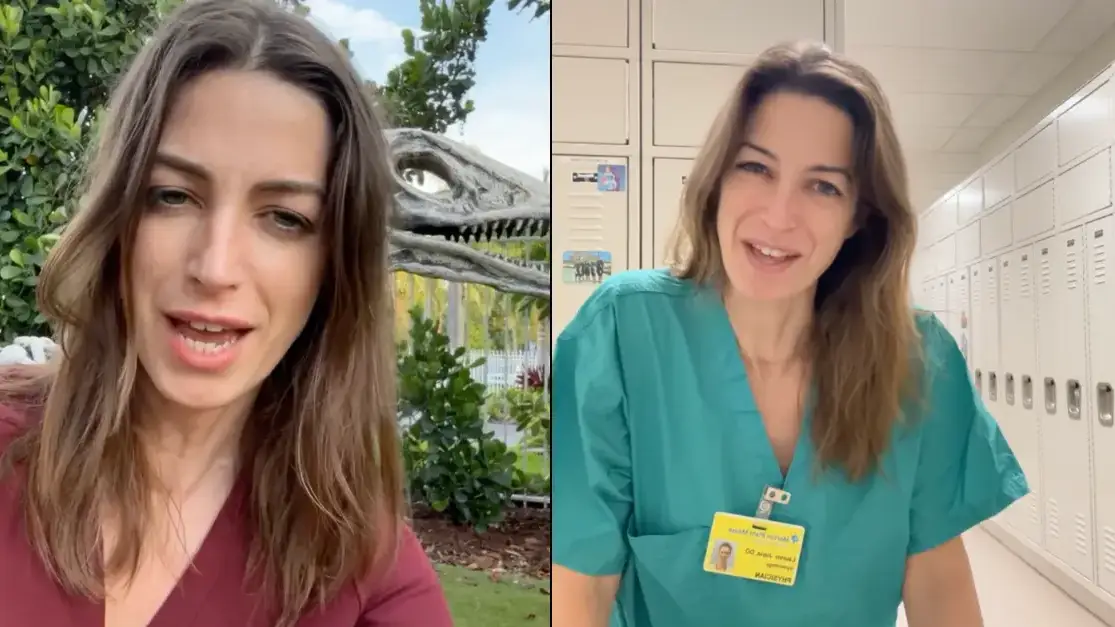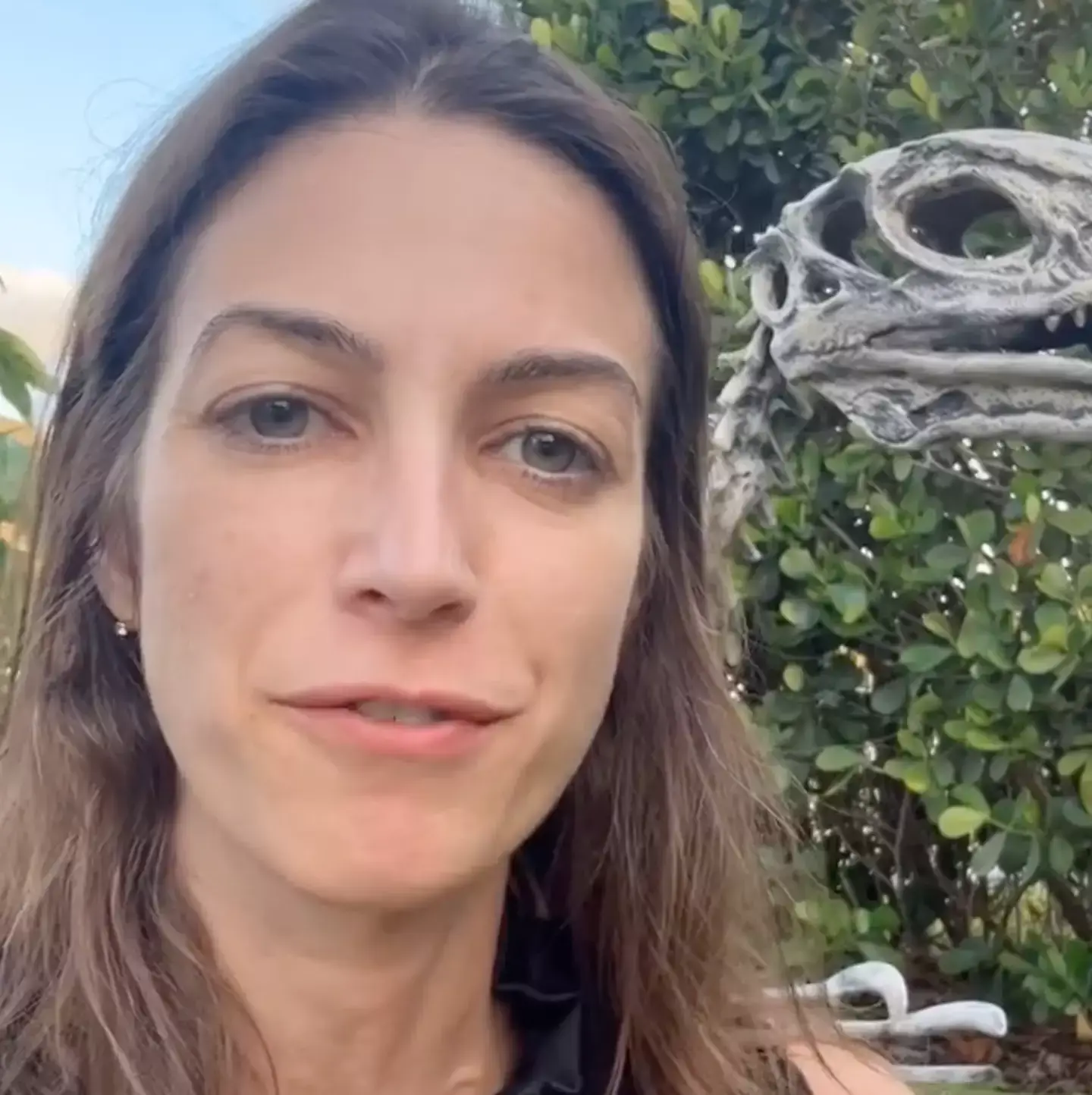
A doctor who diagnosed herself with stage four colon cancer has shared the two ‘mild’ symptoms she discovered.
US-based gynaecologist Lauren Juyia was diagnosed in August 2022 when she started to notice a couple of changes to her body.
Aged 37 at the time, the doctor went to HCA Florida Oak Hill Hospital to undergo an ultrasound, which revealed large masses in her ovary.
A mass is a lump in the body, and although it doesn't always mean cancer, the quicker it grows, the more worrying it can be.
Advert

Just two weeks later, Dr Juyia's mass had grown from 8cm to 24cm.
"I had never seen anything benign, meaning not cancer, grow that fast before,"she told Good Morning America in 2023.
"So we kind of knew, deep down, that this was not going to be good.
"And we suspected ovarian cancer of course, because it was the ovaries being the masses."
A month on, the masses had spread to her ovaries, uterus, omentum, appendix, and abdominal area.
What is colon cancer?
Colon cancer, or bowel cancer, is one of the most common types of cancer in the UK and can be found anywhere in the large bowel, which includes the colon and rectum.
Dr Juyia's symptoms

While symptoms usually range from having blood in the stool, irregular poos and weight loss, Dr Juyia didn't experience any of these.
Instead she noticed a 'pelvic heaviness', which turned into a 'pelvic mass'.
"Having a background in obstetrics, we describe size by weeks of pregnancy and so I was like, 'Oh my god, I have a 16-week-size mass.' From experience, I could tell that this was my ovary," she said.
"I was a little tired in the afternoon for about two months previous to this and as a mum with two little kids - I had been recently nursing them, they were still waking up in the night, I work full time - I didn't think anything of saying, 'Oh, I think I need a tea in the afternoon'," she said after getting her colon cancer diagnosis.
"Whereas maybe someone in their 50s or 60s would be much more tired from stage 4 tumours taking up their energy."
Following her cancer diagnosis, she began chemotherapy treatment and carried on working to get her mind off the ordeal.
She underwent surgery in March 2023 and, thankfully, there has been 'no evidence of disease'.
"People that are younger than the screening age (45) should still be paying attention to our symptoms because we're not eligible for screening usually," she explained.
"We might not have any symptoms because we are young, our bodies are more resilient. We can tolerate more symptoms."
If you’ve been affected by any of these issues and want to speak to someone in confidence, contact Macmillan’s Cancer Support Line on 0808 808 00 00, 8am–8pm seven days a week.